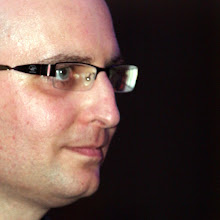יום רביעי, 3 ביולי 2013
אִם כִּשְׁלוֹנִי נִקְבַּע?
אִם כִּשְׁלוֹנִי נִקְבַּע?
הַלְיֵאוּשׁ אֶכָּנַע,
וְעוֹד, יָגוֹן אֶשְׂבַּע
שֶׁאֵין בּוֹ תַּקָּנָה?
אוֹ אַהֲבָה אַחֲלִיף?
כִּי יֵשׁ עֹז בִּי לִפְרֵדָה,
אוֹכִיחַ בְּשִׂכְלִי
לִבִּי לִי לִפְקֻדָּה.
גַּם אשֶׁר כִּי נֶחֱלַם,
לֹא יַמְתִּיק בִּי הַלָּשׁוֹן,
תַּשׁ בִּטְרָדוֹת כֹּחָם,
יָגוֹן נָד לְיָגוֹן.
תִּקְוָתִי נִזְנַחַת
כְּיָד גּוֹרָל בְּעָלוּב,
מַטְּרַת אוֹהֵב - אַחַת,
אוֹבֵד, הֵן שׁוֹב יָשׁוּב.
מִי שֶׁבִּתְשׁוּקַת אֱמֶת אָהַב לֹא יוּכַל לֵילֵךְ,
הַלְיֵאוּשׁ אֶכָּנַע,
וְעוֹד, יָגוֹן אֶשְׂבַּע
שֶׁאֵין בּוֹ תַּקָּנָה?
אוֹ אַהֲבָה אַחֲלִיף?
כִּי יֵשׁ עֹז בִּי לִפְרֵדָה,
אוֹכִיחַ בְּשִׂכְלִי
לִבִּי לִי לִפְקֻדָּה.
אִם בָּהּ נֶחָמָה לִתְשׁוּקָתִי, לָאוֹהֵב
שָׂכָר,
תִּחְיֶה כְּעֹנֶג לִלְבָבִי יָקָר.
כִּי, כִּי, כִּי עוֹד לִבִּי חָפֵץ, בּוֹא תָּבוֹאִי,
כִּי! כִּי! כִּי, אַעֲרִיצֵךְ אוֹ אֹהַבֵךְ; בּוֹאִי!
תִּחְיֶה כְּעֹנֶג לִלְבָבִי יָקָר.
כִּי, כִּי, כִּי עוֹד לִבִּי חָפֵץ, בּוֹא תָּבוֹאִי,
כִּי! כִּי! כִּי, אַעֲרִיצֵךְ אוֹ אֹהַבֵךְ; בּוֹאִי!
גַּם אשֶׁר כִּי נֶחֱלַם,
לֹא יַמְתִּיק בִּי הַלָּשׁוֹן,
תַּשׁ בִּטְרָדוֹת כֹּחָם,
יָגוֹן נָד לְיָגוֹן.
תִּקְוָתִי נִזְנַחַת
כְּיָד גּוֹרָל בְּעָלוּב,
מַטְּרַת אוֹהֵב - אַחַת,
אוֹבֵד, הֵן שׁוֹב יָשׁוּב.
מִי שֶׁבִּתְשׁוּקַת אֱמֶת אָהַב לֹא יוּכַל לֵילֵךְ,
כִּי קוּפִּידוֹן בְּכָל לֵבָב מוֹלֵךְ.
כִּי, כִּי, כִּי עוֹד לִבִּי חָפֵץ, בּוֹא תָּבוֹאִי,
כִּי! כִּי! כִּי, אַעֲרִיצֵךְ אוֹ אֹהַבֵךְ; בּוֹאִי!
מאת ג'ון דאולנד (1563-1626), מתוך ספר השירים השלישי (1603)
(תרגום שלי מאנגלית)
הערות המתרגם
ש' 1– speed: הצלחה, שגשוג. ומכאן גם ברכת הפרידה "good speed". את שלילתה "never speed" תרגמתי כ"כישלון".
המקור:
כִּי, כִּי, כִּי עוֹד לִבִּי חָפֵץ, בּוֹא תָּבוֹאִי,
כִּי! כִּי! כִּי, אַעֲרִיצֵךְ אוֹ אֹהַבֵךְ; בּוֹאִי!
מאת ג'ון דאולנד (1563-1626), מתוך ספר השירים השלישי (1603)
(תרגום שלי מאנגלית)
הערות המתרגם
ש' 1– speed: הצלחה, שגשוג. ומכאן גם ברכת הפרידה "good speed". את שלילתה "never speed" תרגמתי כ"כישלון".
המקור:
What if I never speed?
What if I never
speed?
Shall I straight
yield to despair,
And still on sorrow
feed
That can no loss
repair?
Or shall I change my
love?
For I find pow'r to
depart,
And in my reason
prove
I can command my
heart.
But if she will pity
my desire and my love requite,
Then ever shall she
live my dear delight.
Come, come, come,
while I have a heart to desire thee,
Come, come, come,
for either I will love or admire thee.
Oft have I dreamed
of joy,
Yet I never felt the
sweet,
But tired with
annoy,
My griefs each other
greet.
Oft have I left my
hope
As a wretch by fate
forlorn,
But Love aims at one
scope,
And lost, will still
return.
He that once loves
with a true desire never can depart,
For Cupid is the
king of ev'ry heart.
Come, come, come,
while I have a heart to desire thee,
Come, come, come,
for either I will love or admire thee.
By John Dowland (1563-1626)










0 תגובות:
הוסף רשומת תגובה